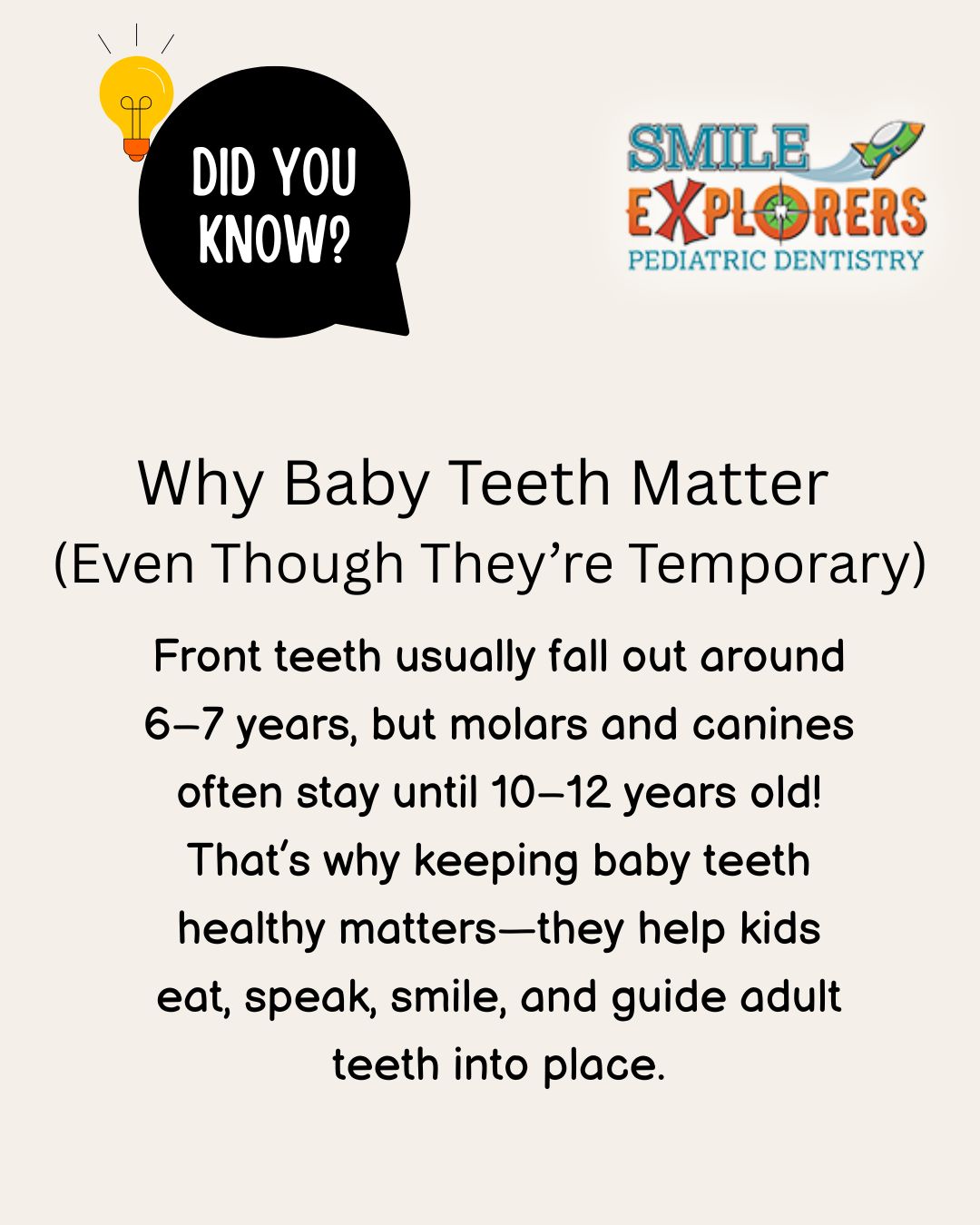Why Baby Teeth Deserve More Attention Than You Think

As pediatric dentists, one of the most common questions we hear is:
“Do we really need to fix cavities in baby teeth if they’re going to fall out anyway?”
It’s a fair question—and the answer is a clear yes. Baby teeth (or primary teeth) may not last forever, but they set the stage for your child’s lifelong oral health.
The Timeline of Baby Teeth
Each child develops 20 baby teeth in total. These small but mighty teeth stick around for years:
- The front teeth (incisors) are usually the first to fall out, around ages 6–7.
- The canines and molars remain in place much longer, often until ages 10–12.
This means that for nearly a decade, your child depends on these teeth to eat, speak, and smile with confidence.
Why Baby Teeth Matter More Than You Think
- Guides for Permanent Teeth: Baby teeth hold the proper space for adult teeth to grow in correctly. Losing one too early can create alignment problems later.
- Eating & Nutrition: Healthy teeth allow children to chew a variety of foods, which is essential for growth and development.
- Speech Development: Teeth help with forming sounds. A child missing teeth too soon may develop a speech impediment.
- Confidence in Childhood: A pain-free, healthy smile allows kids to laugh freely and engage socially without fear.
I often explain to parents: think of baby teeth as “training wheels for the adult smile.” Without them, the ride gets a lot bumpier.
What Happens When Baby Teeth Are Neglected
If cavities in baby teeth are ignored, children may experience:
- Pain that interferes with eating, sleeping, or concentrating in school
- Infections that can spread to the developing permanent teeth beneath
- Early loss of teeth, which can lead to crooked or crowded adult teeth
- Emotional stress if children feel embarrassed about their smile
We once treated a 7-year-old who had multiple cavities in his back baby molars. His parents thought those teeth would “fall out soon anyway.” What they didn’t realize is that those molars were supposed to last until age 11. By the time he came in, he was struggling to chew, and his adult teeth were already shifting out of alignment. It was a powerful reminder that baby teeth should never be taken lightly.
How Parents Can Protect Baby Teeth
- Brush twice a day with a fluoride toothpaste (a rice-sized smear for toddlers, a pea-sized amount after age 3).
- Begin flossing as soon as two teeth touch.
- Offer a balanced diet and limit sticky, sugary snacks.
- Visit the dentist by your child’s first birthday, and schedule checkups every six months.
Final Thoughts
Baby teeth may be temporary, but their impact is permanent. Caring for them helps prevent pain, protects developing adult teeth, and ensures your child grows up with a healthy, confident smile.
At Smile Explorers, we love guiding families through this journey. Whether it’s your child’s first tooth or their last baby tooth, we’re here to keep their smile healthy every step of the way



